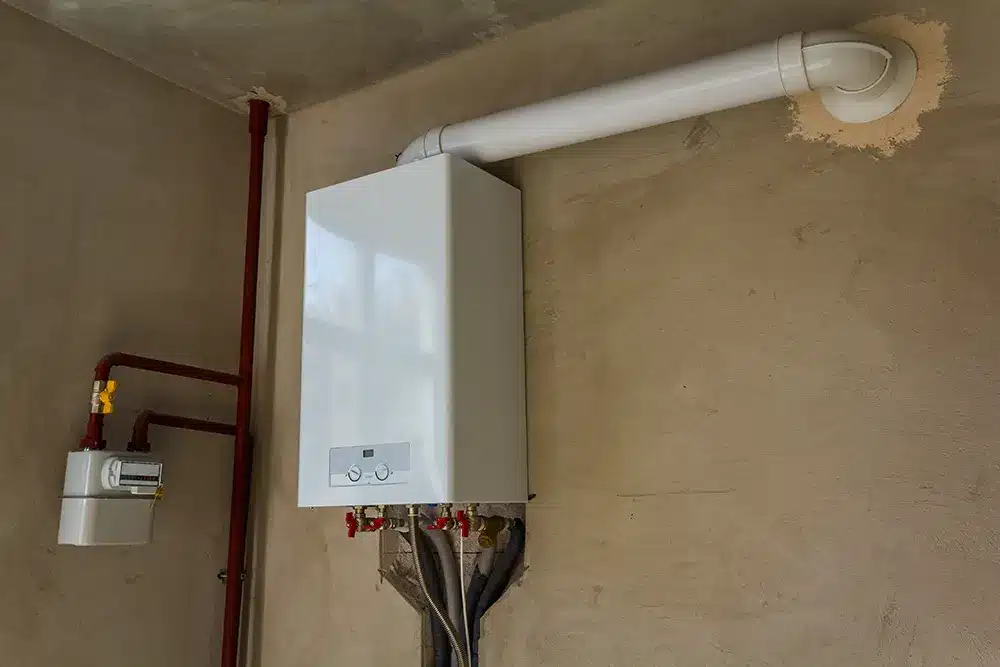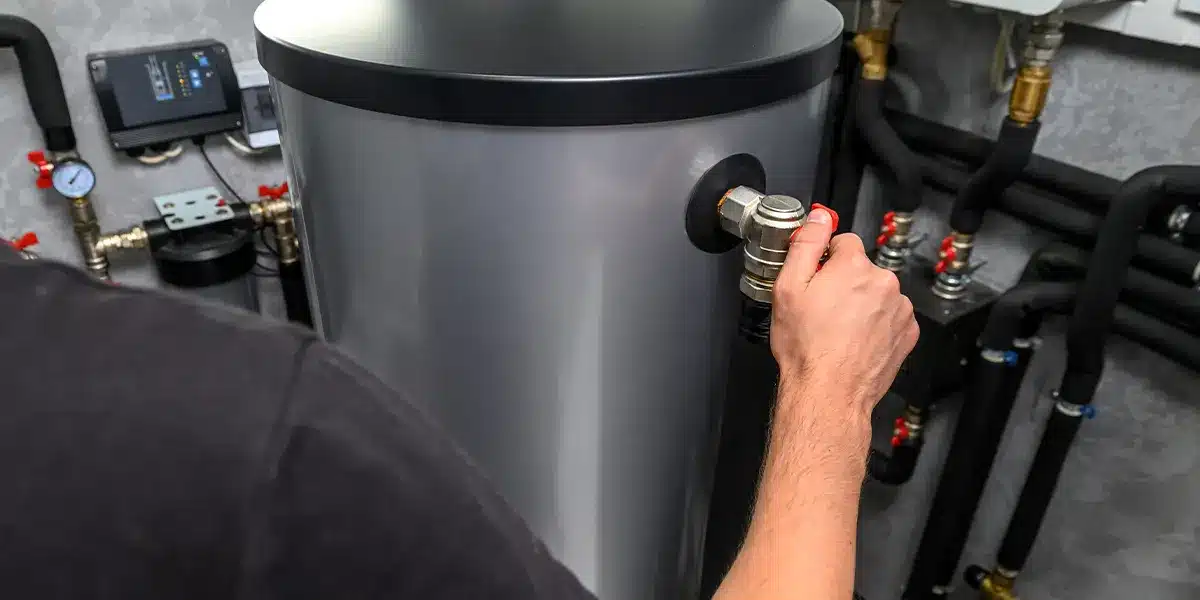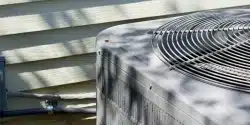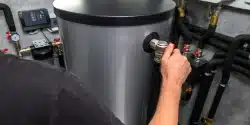If you’re planning to replace or upgrade your water heater, you’ve probably asked the big question: hot water tank vs tankless — which one is better for your home? The answer depends on your needs for hot water, your budget, and the way your household uses water every day.
This guide breaks down the real differences between storage tank water heaters (the traditional kind) and tankless water heaters (also known as demand water heaters), so you can make a smart decision that works for your home and lifestyle.
How a Hot Water Tank Works
Let’s start with the basics. There are 2 main types of water heaters to choose from:
- Tank water heaters (also called traditional or storage tank water heaters) store a large amount of hot water in an insulated tank, typically between 40 to 80 gallons. The water in the tank is heated by gas or electric energy and kept hot until it’s needed.
- Tankless models (also called on-demand water heaters) don’t store hot water at all. Instead, they use high-powered heating elements or a heat exchanger to heat water instantly as it passes through the system.
So the big difference? Tank models keep a ready supply of hot water in storage, while tankless water heaters heat water only when you turn on the tap.
Pros and Cons of Tank Water Heaters
Pros:
- Lower installation costs
- Simple, proven technology
- Can supply hot water to multiple fixtures at once
- Usually easier to replace or upgrade
Cons:
- Use more energy to keep water hot all day, even when not in use
- Bulky and take up more space
- Hot water can run out if you exceed the tank’s capacity
Lifespan: On average, tank water heaters typically last about 10 to 15 years.
Pros and Cons of Tankless Water Heaters
Pros:
- Highly energy efficient since they only heat water as needed
- Endless supply of hot water on demand
- Compact and wall-mounted to save space
- Can last up to 20 years with the correct maintenance
Cons:
- Higher upfront installation costs
- Might require upgrades to your gas lines or electrical system
- Might struggle to keep up with high demand in large households
Lifespan: Most tankless models can last 15 to 20 years, often longer with regular maintenance.

Energy Efficiency and Operating Costs
When it comes to energy efficiency, tankless water heaters usually win. Because they don’t need to keep a tank full of water hot 24/7, they use less energy overall. This can help decrease your energy costs, especially if your household doesn’t use a lot of hot water all day long.
Tank models, on the other hand, keep water hot even when you’re not using it, which means they cycle on and off to maintain the temperature. Over time, this can add up.
Installation Considerations
Installing a tankless water heater usually involves more time and cost than replacing a traditional tank. Here’s why:
- It may need upgraded gas lines or higher voltage if you’re going electric
- It has more complex technology
- You may need to install new ventilation or drainage
That said, installation costs can vary a lot depending on your home’s current plumbing and electrical setup. If your old tank is already gas-powered and you want to install a gas tankless model, the transition might be easier.
Replacing a tank water heater is typically faster and cheaper, especially if you’re installing the same type (gas for gas, electric for electric).
Hot Water Needs and Household Size
Your home’s water usage plays a big role in what system is right for you.
Tank water heaters are great for homes that:
- Have multiple bathrooms or high simultaneous water use
- Prefer lower upfront costs
- Are okay with limited hot water in exchange for simplicity
Tankless models are great for:
- Smaller homes or condos
- Families who want to save on long-term energy costs
- Homeowners with lower daily hot water needs
- People who want a more modern, space-saving system
Larger families can still use tankless units, but you may need multiple systems or a high-capacity unit to meet your needs.
Gas vs Electric Models
Both tank and tankless water heaters come in gas or electric versions. Which one is best for you depends on:
- What energy sources are available in your area
- Your budget for installation costs
- Whether your home is already set up for gas
Gas models tend to have faster recovery rates and lower energy costs long-term, but they require proper venting. Electric models are easier to install and may be cheaper upfront, but they may have higher monthly operating costs depending on your hydro rates.
Maintenance and Lifespan
Regular maintenance can extend the life of both systems:
- Tank models should be flushed yearly to remove sediment
- Tankless models benefit from periodic descaling, especially in areas with hard water
If maintained well, tankless water heaters typically last longer than traditional ones, often hitting or exceeding the 20-year mark.
Final Thoughts
When deciding between a hot water tank vs tankless water heater, it really comes down to what works best for your home. If you want something affordable and familiar, a storage tank water heater might be the right call. But if you’re thinking long-term, want to save energy, and never run out of hot water, a tankless model could be a great investment.
Still not sure what’s right for your home? Contact Husky Heating and Cooling. Our team can walk you through the options, explain what’ll work best for your setup, and help with professional installation from start to finish.











